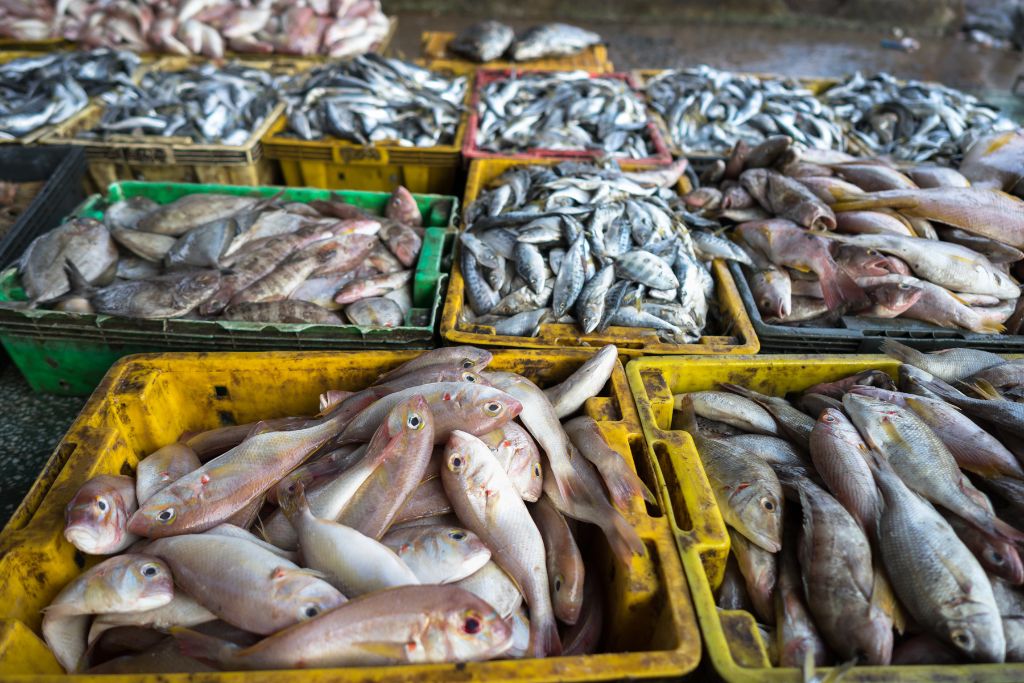Wildlife conservation and animal advocacy nonprofit Born Free USA has released a major new report, Oceans Away from Home: The Suffering of Fish in Captivity, and accompanying aquarium investigation revealing the true extent of fish suffering in captive conditions.
—
Wildlife conservation and animal advocacy nonprofit Born Free USA has released a major new report, Oceans Away from Home: The Suffering of Fish in Captivity, and accompanying aquarium investigation, revealing the true extent of fish suffering in captive conditions. Despite being some of the animals most commonly held captive around the world, fish are vastly overlooked and neglected in terms of basic animal husbandry, welfare, and legislation protecting them from animal cruelty, neglect, and abuse. Further, despite claims to contribute to fish conservation, animal welfare, and visitor education efforts, zoos and aquariums do little to nothing, and in many cases work against, these goals.
Together with direct evidence (including videos and pictures) from investigations at three popular United States aquariums, the report:
- Summarises the harmful effects of wild fish population depletion to supply the demand for the private fish trade.
- Analyses the gross shortcomings of zoos in protecting fish welfare and conservation.
- Confirms fish sentience by providing evidence for complex social and neurological processes similar to mammals, and therefore a similar capacity to experience suffering and pain.
- Argues for a more compassionate and comprehensive protection of the tens of thousands of unmonitored fish species that fall victim to the exploitation-driven private fish trade every day.
Particularly damaging to fish welfare and human public health and safety are touch tanks. There are no standards by which touch tanks are required to be operated. Therefore, practices differ widely between aquariums, including species involved in touch tanks, amount of time animals are exposed to direct human contact, how human contact is monitored and/or directed, bacterial concerns from pathogens introduced from outside of the fishes’ habitat, and any measures taken to reduce stress or injuries experienced by the animals involved. Zoonoses, or diseases that may be transferred from animals to humans, also pose a major health concern. Zoonotic diseases, primarily bacterial infections, can be passed through direct physical contact with fish, the tank and its components, and food. These infections – some potentially fatal – are often asymptomatic in fish but can cause serious illness in humans.
Some consistent psychological behaviours and physical impairments have been observed to be directly associated with animals in touch tanks and thus likely indicative of poor welfare and health in these captive environments. These include stereotypic behaviours in stingrays like “surface breaking,” an abnormal repetitive behaviours induced by chronic stress, trauma, or boredom, or a reaction to the shallow depth of the pools compared to their natural habitat; and “tail-wagging” in dogfish, where the fish attempt to escape the exhibit by walking on their tails and jumping out of the tank.
“Fish are biologically and behaviorally very distinct from humans, which has for a long time led to the misconception that they are not capable of feeling pain, frustration, boredom, or any of the emotions we take for granted in mammal species,” Born Free USA CEO Angela Grimes said. “But most animal welfare research on fish is in resounding agreement: fish are sentient, intelligent, social, and highly capable of suffering and feeling pain. They do not belong in tiny glass tanks devoid of any meaningful environmental elements. They deserve freedom, no matter how much smaller or different they seem compared to the rest of the animal kingdom.”
To prevent irreversible wild population depletion and end the cycle of unnecessary suffering for fish in captivity, Born Free USA recommends the following actions:
- Zoos should immediately halt the wild capture of fish from their natural habitats to stock collections.
- Zoos must ban touch tanks from aquariums, as they do not contribute to any genuine conservation efforts and directly negatively impact the welfare of the animals and humans involved.
- Fish should be included in the definition of “animals” in both state and federal animal cruelty legislation based on the scientific evidence provided in the report.
- Members of the public should say “no” to visiting aquariums.
Read the report and explore the campaign here.
You might also like: Experts Join Together to Offer Support to Stop Caribbean Monkey Cull


















